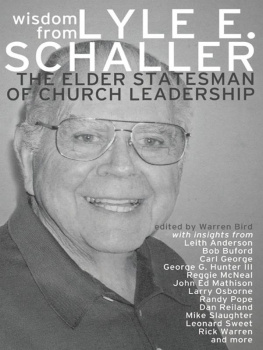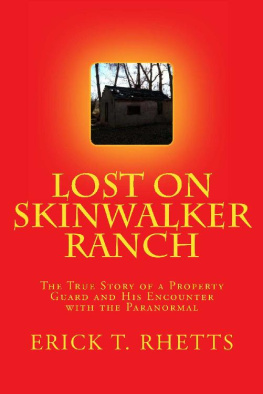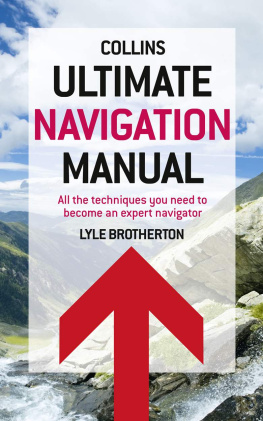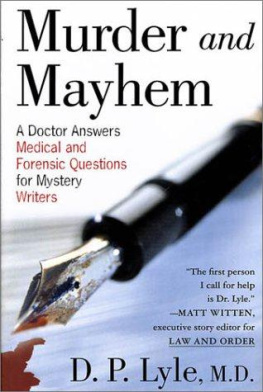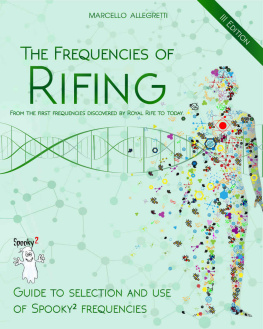Erick Lyle - On the Lower Frequencies
Here you can read online Erick Lyle - On the Lower Frequencies full text of the book (entire story) in english for free. Download pdf and epub, get meaning, cover and reviews about this ebook. year: 2020, publisher: Penguin, genre: Detective and thriller. Description of the work, (preface) as well as reviews are available. Best literature library LitArk.com created for fans of good reading and offers a wide selection of genres:
Romance novel
Science fiction
Adventure
Detective
Science
History
Home and family
Prose
Art
Politics
Computer
Non-fiction
Religion
Business
Children
Humor
Choose a favorite category and find really read worthwhile books. Enjoy immersion in the world of imagination, feel the emotions of the characters or learn something new for yourself, make an fascinating discovery.
- Book:On the Lower Frequencies
- Author:
- Publisher:Penguin
- Genre:
- Year:2020
- Rating:3 / 5
- Favourites:Add to favourites
- Your mark:
- 60
- 1
- 2
- 3
- 4
- 5
On the Lower Frequencies: summary, description and annotation
We offer to read an annotation, description, summary or preface (depends on what the author of the book "On the Lower Frequencies" wrote himself). If you haven't found the necessary information about the book — write in the comments, we will try to find it.
On the Lower Frequencies — read online for free the complete book (whole text) full work
Below is the text of the book, divided by pages. System saving the place of the last page read, allows you to conveniently read the book "On the Lower Frequencies" online for free, without having to search again every time where you left off. Put a bookmark, and you can go to the page where you finished reading at any time.
Font size:
Interval:
Bookmark:


Contents
Stories that were once dispatches from an ongoing political struggle or that were, literally, given away free on the streets, have now become this book. Virtually all of the material in this book originally appeared in the following publications: my magazine, Scam, issues #4 (2000), #5 (2005), and #5.5 (2006); my street newspaper the Turd-Filled Donut, issues #18 (1997-2001), Nosedive (2002), Rice Harvester (2006), Full Gallop (2001), 949 Market (2001), Long Ago and Far Away (2004); Chris Carlssons book The Political Edge (2004), or NPRs radio show This American Life. This is the first time they have been assembled all in one place. Big thanks to Luke Gerwe, Ammi Emergency, Icky Apparatus, John Hocevar, Jeff Miller, and Richard Nash for help in putting it all together! This one is dedicated to Ivy, my lifelong partner in crime.

When I first moved to the city, TV news had run a story about the donut shop on the corner, the one with the huge sign that proudly proclaimed it was Open 25 Hours. The story called the corner, The Epicenter of Crime, and they meant for all of San Francisco. It was a staggering idea. I would sit in the donut shop and try to imagine crime, disturbance, discontent radiating outward across the entire city from that very spot TWENTY FIVE HOURS A DAY. Years later, I moved into my friend Jimmys house on the alley behind the donut shop, and got to sit back and watch it all.
On San Carlos Street there was a daily sweet and sad procession, a never ending back and forth, that we could watch from our steps. There was the sound of men pushing fruit bar carts up the alley, clanging their bells, calling out; and there was that tense, menacing no-sound sound of cops cruising slowly the wrong way down the alley. The girl down the street that I had a crush on would walk by, short sleeves in the Mission sun, smiling sleepily on her way to morning coffee at 1:00 PM, and Eddie the drug dealer would walk the other way, looking exhausted, sagging against a palm tree with gang tags carved into its weathered trunk. My favorite time on San Carlos was 6:00 AM, just before the street woke up. Staring down the alley past the tired old Victorians and shoes dangling from telephone wires, I could imagine 10, 20, 100 years of 6:00 AM, each day exactly like this one, yawning and stretching into the past. It was a working class street, a ghetto alley, a place with problems that money wouldnt solvebut, for now, asleep and dreaming.
The aspiration of a city, of a neighborhood, or a street, is not that everyone in it would be best friends, but that everyone would, at least, tolerate and respect each other. This idea held our block together. The landlord of the house on the other side of us probably didnt LOVE it that Jimmy would climb up the telephone pole across the street to hang flea market paintings on it with a screw gun, but he still brought us free loaves of bread that he got from his friend who worked at a bakery. Eddie knew we wouldnt call the cops on him and when our friends bike got stolen from in front of the house, it was Eddie who helped get it back. The antique bookbinder guy down the block could have called the cops on the homeless guy who slept in his doorway; instead, he actually offered him a job, teaching him the art of bookbinding, paying him, and letting him stay in the doorway.
The last I heard, the homeless guy was turning out to be a lousy bookbinder, though. He had to smoke crack every morning when he got up and it ruined his concentration. I heard that the bookbinder and homeless guy were even starting to hate each other a little. But I think thats why I always liked that story. It didnt have a feel-good, happy ending, but they were still trying to work it out. This back and forth, this trying to work it out seemed like it would go on, 25 hours a day, forever.
But the Mission was changing. Streets that had been called down and out were now called gritty, and the Missions turd-and-graffiti motif was now fashionable. Termite-ridden, drafty old Victorians were bought at exorbitant prices, not to live in, but to immediately resell, like Internet stocks. Everyone in San Francisco had a dream that somehow hinged on real estate. The stock market was pumping so much easy cash into the neighborhoodthe good times were so GOODthat the dream even had a name: Cleaning up the Mission. Developers and slumming hipsters congratulated themselves, believing that ordinary greed was actually a moral force, a rising tide to lift all boats.
Our landlord up on the hill had bought into this dream, too.
Our landlord, who Ill call Jacque, was a dour-looking, henpecked little French guya self-employed electrician who happened to own a couple houses. When I think of Jacque, I always think of him standing in the driveway with his plumbing tools and his sad, black mustache, as Jimmy came from the flea market, driving his huge, green, graffiti-covered cargo van. At those times, Jacque always seemed to be thinking, How did this happen to ME? He had bought our house eight years before and inherited Jimmy as his tenant. San Franciscos rent control laws are a stronger til death do us part legal bind than marriage, and, by law, Jimmy and Jacque would go to their graves with Jim still paying a sweet 1988 rent.
In the twelve years Jimmy had lived on San Carlos, hed become as much a part of the street as the street sign. Everybody knew Jimmy. Even the gang kids dressed in blue shook their heads and laughed when the green van drove by. Jim was a self-employed scavenger who sold trash at flea markets and gave away more of it to anyone who asked. Homeless guys came by for clothes and blankets. Jims friends came by looking for baseball gloves or super-eight projectors or a PA for a protest at Civic Center, and he usually hooked everyone up. He was also a long-time neighborhood bartender and had a band. Just about everyone in the Mission had either bought a beer from Jimmy or played drums in his band.
Even though the Mission District Real Estate Gold Mine was becoming national news, Jacque never seemed ambitious enough to try to evict Jimmy and cash in. But he was married to Claire, a sour, sneering woman with upwardly mobile aspirations of her own. Claire hated Jimmy. It was easy to imagine her up there on the hill, working on Jacque, telling him that if he were any kind of a man, hed get rid of that wingnut flea market trash salesman tenant of his so they could sell the house and be rich. Or maybe she wanted to evict us and move into our house in the trendy, up and coming Missiona neighborhood that now even had valet parking. We knew that Jacques first wife had left him several years ago for another woman. Maybe Jacque thought if he got left behind in the Get Rich Quick housing market, Claire would leave him too.
Whatever he thought, our house was now something else to him, a symbol of some brighter, well-heeled future. It was a chance for a henpecked plumber to finally hit it big, to be where the action was, to not be a small time landlord anymore. And all they would have to do would be get rid of US.
We always paid our rent on time and had no problems with Jacque. It would be nearly impossible for him to legally evict us. So Jacque hired a notoriously ruthless and shark-like eviction lawyer, a man so stereotypically vile that when tenants rights protestors staged demonstrations on his lawn, he would come out and greet them, waving and yelling, Smile! as he videotaped them in action.
Font size:
Interval:
Bookmark:
Similar books «On the Lower Frequencies»
Look at similar books to On the Lower Frequencies. We have selected literature similar in name and meaning in the hope of providing readers with more options to find new, interesting, not yet read works.
Discussion, reviews of the book On the Lower Frequencies and just readers' own opinions. Leave your comments, write what you think about the work, its meaning or the main characters. Specify what exactly you liked and what you didn't like, and why you think so.


